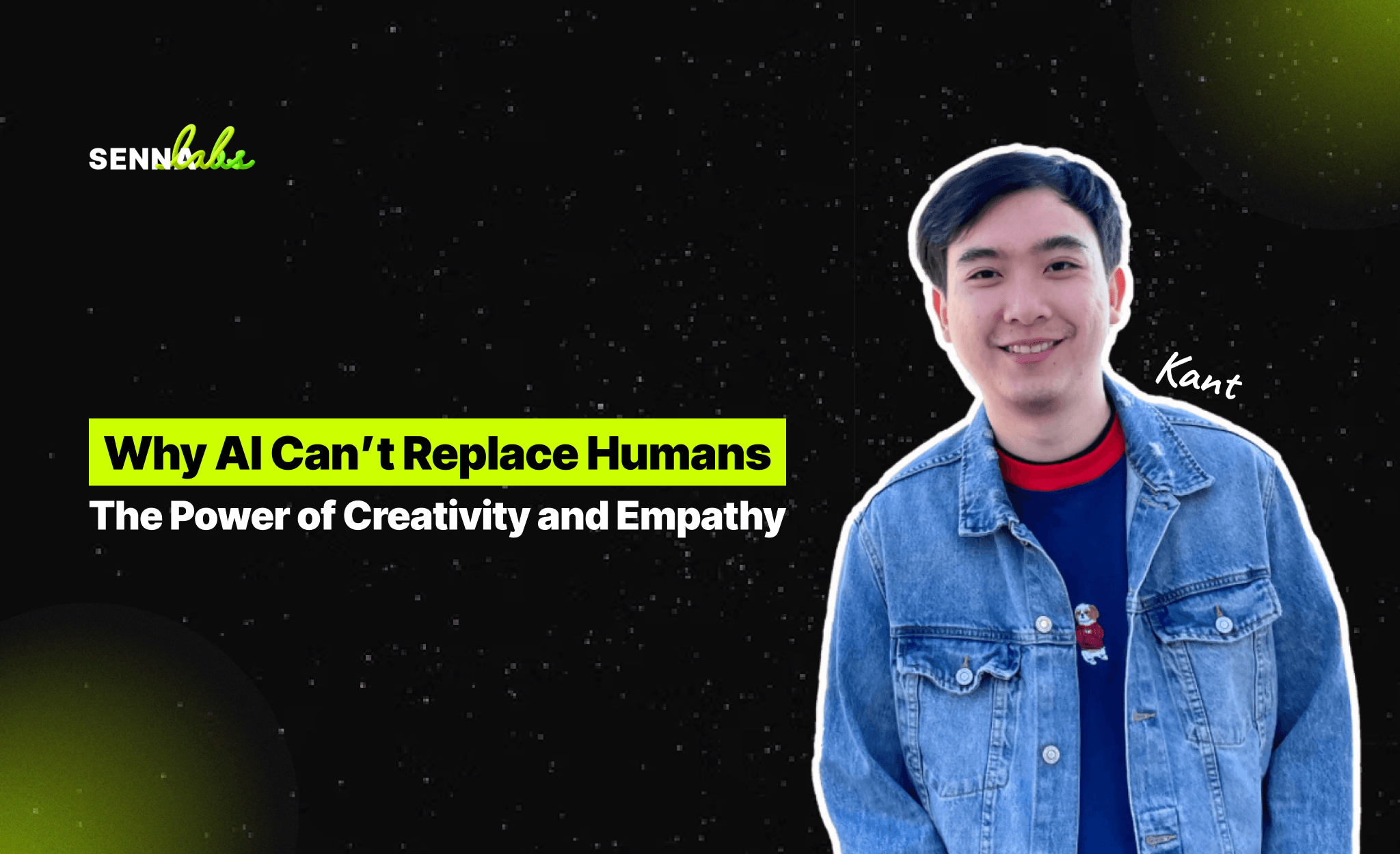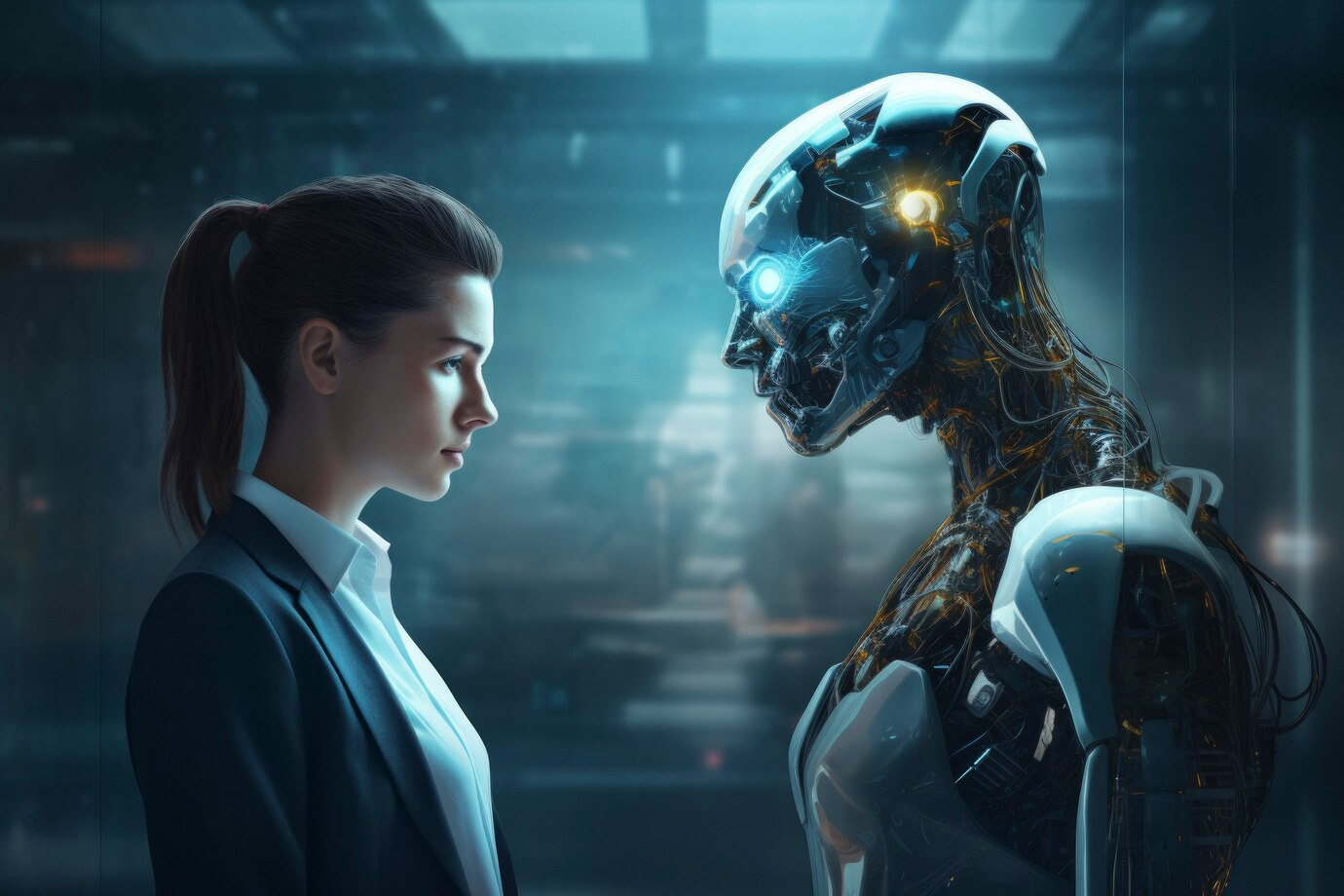Why AI Can’t Replace Humans: The Power of Creativity and Empathy
Share

The rise of artificial intelligence (AI) has sparked debates about whether machines will ultimately replace humans in various aspects of life. While AI continues to advance, automating tasks and transforming industries, the question of whether it will fully replace humans is more complex than a simple yes or no. The answer depends on the context, the role of AI, and the evolving dynamics between humans and machines.

What AI Does Well
AI excels at specific tasks, particularly those involving:
-
Repetition and Efficiency: AI can perform repetitive tasks with speed and accuracy, such as data entry, calculations, or quality checks.
-
Data Analysis: Machine learning models process vast amounts of data to identify patterns, predict outcomes, and make decisions faster than humans.
-
Automation: AI-powered systems like chatbots, robotics, and recommendation engines automate routine processes, increasing efficiency.
-
24/7 Operation: AI systems don’t require rest, making them ideal for round-the-clock operations like customer support or monitoring.
Areas Where AI Cannot Replace Humans
Despite its capabilities, AI has limitations that prevent it from fully replacing humans:
-
Creativity: While AI can generate art or music, human creativity involves imagination, cultural understanding, and emotional depth, which AI lacks.
-
Emotional Intelligence: Building meaningful relationships, empathizing with others, and understanding nuanced emotions are uniquely human traits.
-
Ethical Decision-Making: AI operates within programmed parameters, whereas humans consider moral, ethical, and cultural factors.
-
Complex Problem-Solving: AI struggles with ambiguous or novel situations requiring intuition, experience, and multidisciplinary thinking.
-
Leadership: Inspiring and leading people through vision, empathy, and communication are inherently human skills.
The Concept of Human-AI Collaboration
Rather than viewing AI as a replacement for humans, it’s more productive to see it as a tool for collaboration. The future is likely to involve human-AI partnerships, where each complements the other’s strengths:
-
Augmenting Human Capabilities: AI can handle routine or data-heavy tasks, allowing humans to focus on strategic, creative, or interpersonal roles.
-
Improving Efficiency: AI tools streamline workflows, enabling professionals to achieve more in less time.
-
Enhancing Decision-Making: AI provides data-driven insights, while humans make informed decisions based on context, ethics, and experience.
Jobs Most and Least Likely to Be Affected
Jobs at Risk:
-
Repetitive Roles: Data entry, assembly line work, and basic customer service roles are highly automatable.
-
Routine Analysis: Fields like bookkeeping or simple diagnostics may see significant AI integration.
Jobs Less Affected:
-
Creative Fields: Artists, writers, designers, and innovators will continue to rely on human imagination and vision.
-
Care and Service Roles: Nurses, counselors, and social workers require emotional intelligence and personal interaction.
-
Leadership Positions: Managers and executives use interpersonal and strategic skills that AI cannot replicate.
Challenges and Opportunities
The rise of AI poses challenges, but it also creates opportunities:
Challenges:
-
Job Displacement: Certain roles may become obsolete, requiring reskilling of the workforce.
-
Ethical Concerns: AI decision-making raises issues about fairness, accountability, and privacy.
-
Economic Inequality: Automation could widen the gap between high- and low-skilled workers.
Opportunities:
-
New Jobs: AI creates demand for roles like data scientists, AI trainers, and machine learning engineers.
-
Improved Quality of Life: Automation of mundane tasks frees up time for meaningful work and leisure.
-
Innovation: AI drives advancements in healthcare, education, and sustainability, improving global well-being.
The Human Advantage
AI may be powerful, but humans have unique qualities that make us irreplaceable:
-
Empathy and Compassion: These qualities are critical in healthcare, social services, and leadership.
-
Cultural Understanding: Humans bring context, history, and traditions into decision-making and creation.
-
Adaptability: Unlike AI, humans can learn, innovate, and pivot in entirely new ways when faced with unforeseen challenges.
Conclusion
AI is unlikely to fully replace humans but will undoubtedly reshape the way we work and live. By automating repetitive tasks and enhancing efficiency, AI allows humans to focus on creativity, empathy, and problem-solving. The future is not about competition between humans and machines but about collaboration, where AI complements human strengths.
Rather than fearing AI, embracing its potential to augment our capabilities can lead to a more innovative, equitable, and productive society. The human touch will always remain essential, ensuring that technology serves humanity rather than replacing it.

Share

Keep me postedto follow product news, latest in technology, solutions, and updates
Related articles
Explore all


